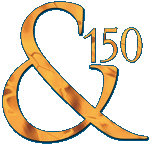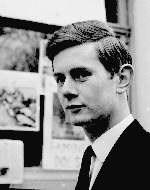
|
This 150 year anniversary of the UCD Literary and Historical Society it is probably a good time ot recall my contact with the Society. While in UCD, 1963-67, I sometimes attended the L&H where I never had the courage to participate in the debates. These were dominated by luminaries like Vincent Browne, Henry Kelly, Anthony Clare, Harry Crawley et al.  When Harry Owens became auditor he asked me along to his first meeting (14 Jan 1967) as a guest speaker and gave me the choice of subject. When Harry Owens became auditor he asked me along to his first meeting (14 Jan 1967) as a guest speaker and gave me the choice of subject.I had been at the L&H some years earlier the night Des Fennell, as a guest speaker, had a serious go at the artistic conservatism of the Irish Catholic Church. In the course of his contribution he commented that "the genius who remains becomes an atheist or a saint". I noted the phrase. It was a very compact description of a complex dilemma facing Roman Catholics with literary or artistic leanings. Irish catholicism was a closed system. In school, you learned the answers to questions you hadn't yet formulated. The catechism was the ultimate reference book. Unchanging through time. Unyielding to progress. A person with a creative, and therefore open ended, instinct had limited choices. Get the hell out; stay and fight; or, stay, absorb the conventional wisdom, work within it and hope to rise above it. Des was right. But it was too pithy a phrase to let languish. I suggested that we invite Des to chair a debate entitled "The genius who remains becomes an atheist or a saint" and take it from there. I would be the guest speaker and kick off the debate. I did yonks of research, including much of the material from Paul Blanshard's book "The Irish and Catholic Power". My central thesis was that Irish Catholic theology was a closed logical system, defined and policed by the high priesthood; that it was intellectually totalitarian and ruthless in practice; but that Pope John XXIII, of relatively recent origin, had turned a key and opened a door which could not be closed again. The doctrine of "error has no rights", which was used to justify the crusades and the inquisition alike, had now been breached in favour of a rights-based doctrine founded in the dignity of the person. Salvation was at hand, even for the likes of me. The night proved interesting. Des arrived and appeared to smell a rat. It is not clear whether he recognised the phrase in the motion as one of his own or not but in his opening remarks he virtually defined it out of existence with a plethora of qualifications. I rose to speak, with all my notes, and launched into a long and nervous diatribe which included Bishop Lucy of Cork, the keeper of the gate, and Charles Davis, a theologian, who had recently left the priesthood. In my nervousness, I was constantly referring to my notes, and getting close to actually reading my text. This was not allowed in the L&H and I was subject to a barrage of heckling, particularly, as I remember, from Vincent Browne. None of the audience, however, appreciated my dilemma. As a maiden speaker I would have been entitled to read my notes. But, after attending the college for four years and occasionally attending the L&H in that time, I didn't have the sheer gall to claim the privilege which was my due. A very sic transit indeed. and Letter from Auditor here |
Back to Biographical